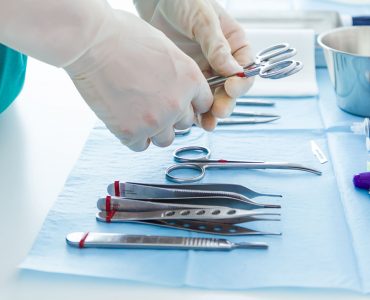Question: Dear Rabbi Sprung, This year Asara b’Teves falls on a Friday. Is it Halachically acceptable to break my fast with a light meal of cake and coffee rather than a full Seudas Shabbos? Answer: The fast of Asara...
It’s All About the Timing
There is an obligation Min haTorah to recite Krias Shema twice daily, once in the morning and again in the evening. The Gemara in Brachos (4b)adds: R’ Yehoshua ben Levi said, “Although one recited Krias Shema in Shul...
Chanuka for the (Physically) Challenged
Even if a person cannot light the Neiros without assistance, he may recite the Bracha if he performs the lighting himself, even if somebody holds and guides his hand. However, if he cannot do it on his own (for example...
Double Jeopardy?
Although there is no Issur to marry a widow me’Ikar haDin (provided that it is at least ninety days from the date of her husband’s death[1] – see Shulchan Aruch E.H. 123:1), Kabbalistic sources relate that...
Disputed Danger
An important principle in Hilchos Dayanim is, “Ein l’Dayan Ela Ma she’Einav Ro’os” – a Dayan can only rule based on the facts in front of him and what he believes to be correct. There are several ramifications, the most...
From the Rabbi’s Desk: Hiring Aides and Caregivers for Parents
Question: Our father has been hospitalized for an extended period and we have been taking shifts to be by his side to assist him. This has become a great burden and we are considering hiring a caregiver to be with him...
Sweet Brachos
The Shulchan Aruch rules (O.C. 196:1): A person who eats a forbidden food – though it may only be Asur mid’Rabbanan – cannot be included in a Zimun, nor does he recite a Bracha on the food before or after. According to...
From the Rabbi’s Desk: Is There a Doctor In the Sukkah?
Dear Rabbi Sprung, I am an anesthesiologist, and when I am on-call, I divide my time between the various operating rooms in the hospital and the delivery rooms. As the leader of the on-call team, I direct a group of...

From the Rabbi’s Desk: A Shift Sh’eila: Shofar or Shabbos?
Question: Dear Rabbi Sprung, This question is relevant both personally and to many physicians. I am a resident in a hospital in Chutz la’Aretz and cannot opt out of working on Shabbos and Yom Tov. For Rosh Hashana, I...
Accepting Yisurim – Chodesh Elul
As we enter the Yemei haRachamim, it is time to reflect upon our spiritual condition and our relationship with Hashem. These days are dedicated to Teshuva and Selichos. Looking back on the past year, both as a community...
From the Rabbi’s Desk: Shabbos Scales
Question: Dear Rabbi Sprung, I have Type 1 diabetes, and I am meticulous about the amount of carbohydrates that I consume at each meal and use a scale to weigh my portions. During the week I use a digital scale but I...
Hands Off – Part 2
In last week’s essay, we quoted the Rema’s ruling (E.H. 195:16) that a husband may attend to his sick wife when she is a Nida if nobody else is available and she greatly needs it. Many other Poskim concur. In this...
Do It Again?
[This is the second essay in a series on Halachic ramifications of obsessive-compulsive disorder (OCD).] We will begin this week’s essay with the powerful words of the Steipler zt”l (Orchos Rabbenu 4, p53): You must...
Selected Halachos for Cholim on Tisha b’Av
Seuda Mafsekes Even if a Choleh will not be fasting on Tisha b’Av he should still eat a Seuda Mafsekes because it is one of the Minhagim of Avelus. He is obligated to observe the Avelus even if he cannot fast. He may...
Say It Again?
Obsessive-compulsive disorder (OCD) is characterized by recurring, unwanted thoughts, ideas, or sensations. These cause affected people to feel compelled to engage in repetitive behaviors to alleviate the...
Cholim & Bein haMetzarim
Beginning with Shiva Asar b’Tamuz, we observe many Minhagimas an expression of mourning for the Beis haMikdash throughout Bein haMetzarim. Some customs are observed for the entire period, others only to the “Nine Days”...





